Welcome to our Vendor Continuous Improvement Program! We're excited to share insights on how our collaboration can lead to enhanced performance and mutual success. Throughout this article, we'll explore practical strategies and tools designed to foster growth and innovation within our partnerships. Join us as we delve deeper into this exciting journey of continuous improvement together!
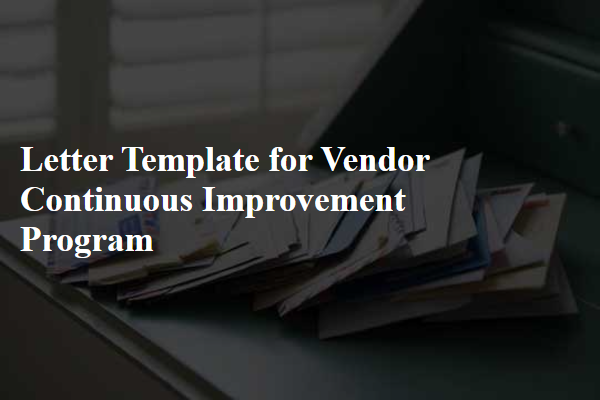
Introduction and Purpose Statement
The Vendor Continuous Improvement Program serves as a structured framework designed to foster collaboration and enhance operational efficiency between our organization and its valued vendors. This initiative aims to identify and implement innovative practices that lead to reduced costs, improved product quality, and increased customer satisfaction. By emphasizing open communication and regular feedback, we strive to build lasting partnerships that stimulate mutual growth and adaptability in an ever-evolving market landscape. Through this program, we invite vendors to actively participate in assessing processes, sharing insights, and exploring avenues for sustainable improvement, ultimately driving success for both parties involved.
Current Performance Evaluation
Current performance evaluation metrics for vendors highlight key performance indicators (KPIs) such as delivery timelines, product quality, and customer satisfaction scores. Delivery timelines, typically assessed in days or weeks, indicate the vendor's reliability in fulfilling orders on time, with benchmarks set at 95% on-time delivery rates for optimal performance. Product quality measurements rely on defect rate percentages, with an acceptable threshold generally being below 2% to ensure that the products meet or exceed industry standards. Customer satisfaction scores, often derived from surveys on a scale of 1 to 10, serve as a direct reflection of client perceptions about the vendor's service. Additionally, compliance with contract terms and the responsiveness to feedback are critical factors in performance evaluation, helping to identify areas for continuous improvement within the vendor relationship. Robust tracking and analysis of these metrics enable stakeholders to foster a culture of quality enhancement and accountability among vendors, ultimately strengthening partnerships and driving business success.
Areas for Improvement
A systematic approach to vendor assessment is crucial for enhancing collaboration and efficiency. Identifying key performance indicators (KPIs) such as delivery timeliness (measured in days), product quality (assessed through defect rates), and communication responsiveness (evaluated through response times) can highlight areas for improvement. Regular audits, conducted quarterly, can reveal patterns and inconsistencies. Implementing a feedback mechanism, for instance, 360-degree feedback from cross-functional teams, fosters transparency and promotes accountability. Additionally, offering training workshops focused on industry best practices and compliance with standardized regulations contributes to elevating overall performance. By systematically addressing these areas, organizations can significantly enhance vendor relationships and operational effectiveness.
Proposed Action Steps and Timeline
The Vendor Continuous Improvement Program focuses on enhancing collaboration and efficiency between suppliers and the organization. The initial action steps include conducting a comprehensive vendor assessment (November 2023) to identify areas for improvement, followed by organizing a series of training workshops (December 2023) aimed at educating vendors on quality standards specific to the automotive industry. Implementation of a feedback mechanism (January 2024) will allow for real-time communication regarding performance metrics. A progress review meeting (March 2024) will evaluate the effectiveness of the improvements and determine necessary adjustments. The timeline concludes with a formal report summarizing findings and potential next steps (April 2024), ensuring ongoing development and alignment with best practices in supply chain management.
Contact Information for Further Communication
A vendor continuous improvement program (CIP) emphasizes collaboration between businesses and their suppliers to enhance productivity and quality. Effective channels of communication are crucial for ensuring that problems are addressed promptly and improvements are realized. Contact information should include essential details for key contacts at the organization, such as the program manager's name, email address, and phone number, which allows for streamlined discussions. Additionally, providing insights about the preferred method of communication (e.g., email, phone calls, video conferencing) can facilitate smoother interactions. Regular feedback loops and scheduled meetings, as outlined in the CIP framework, can also reinforce the partnership and enable timely updates on progress, fostering an environment of continuous improvement and mutual success.

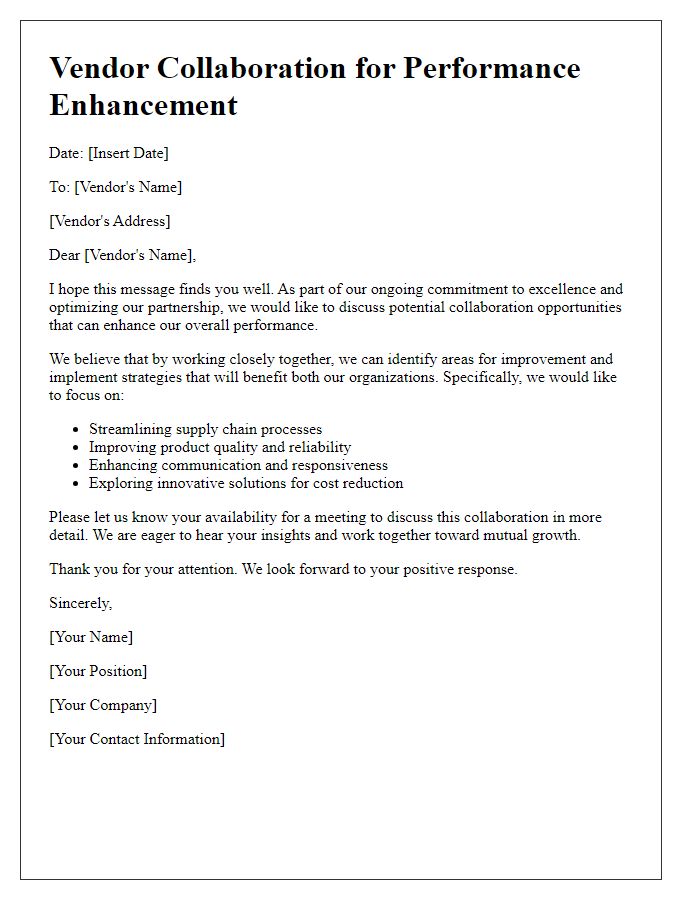
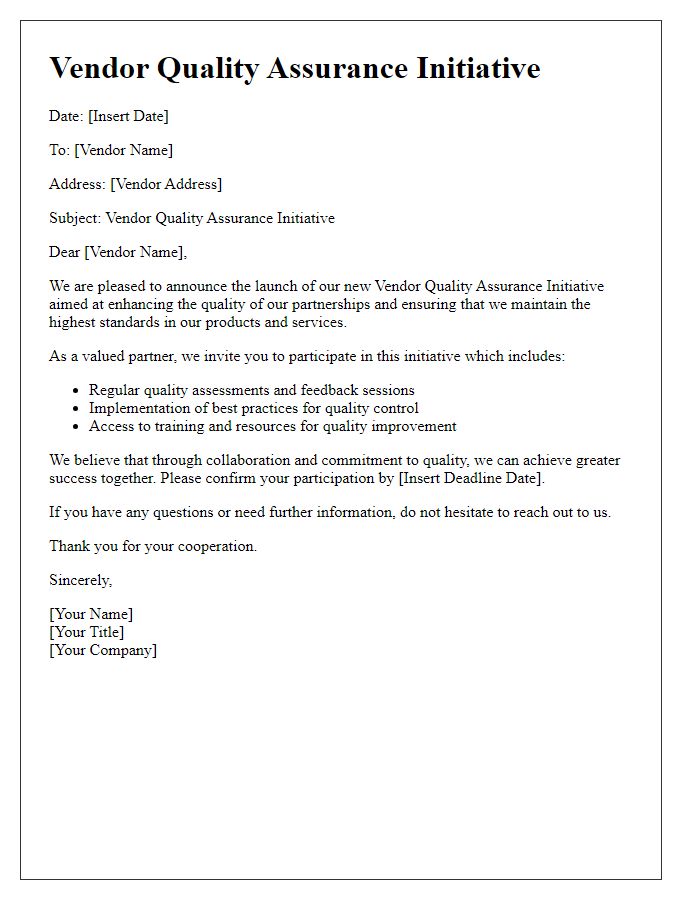
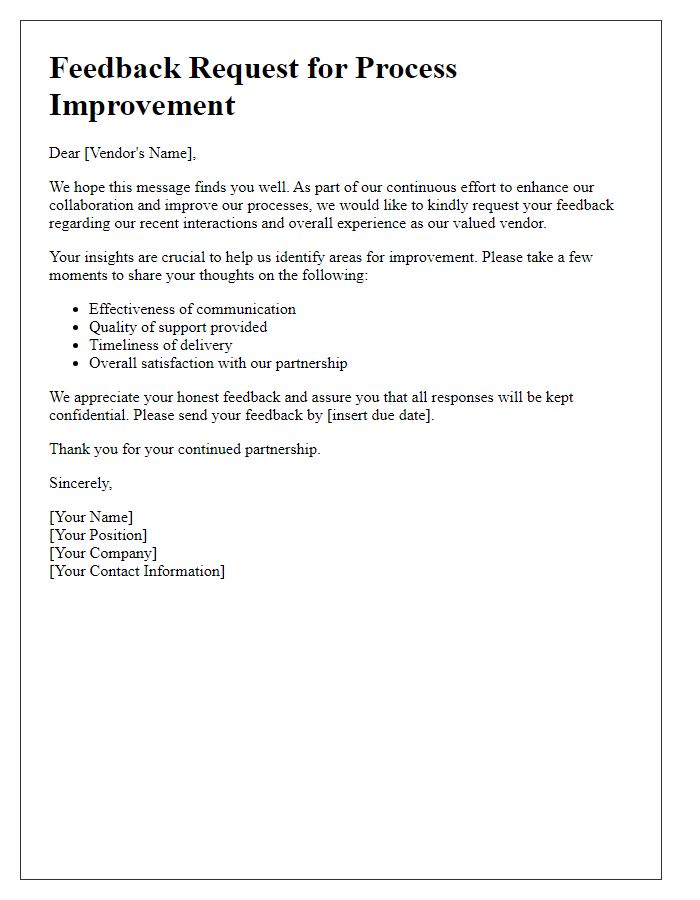
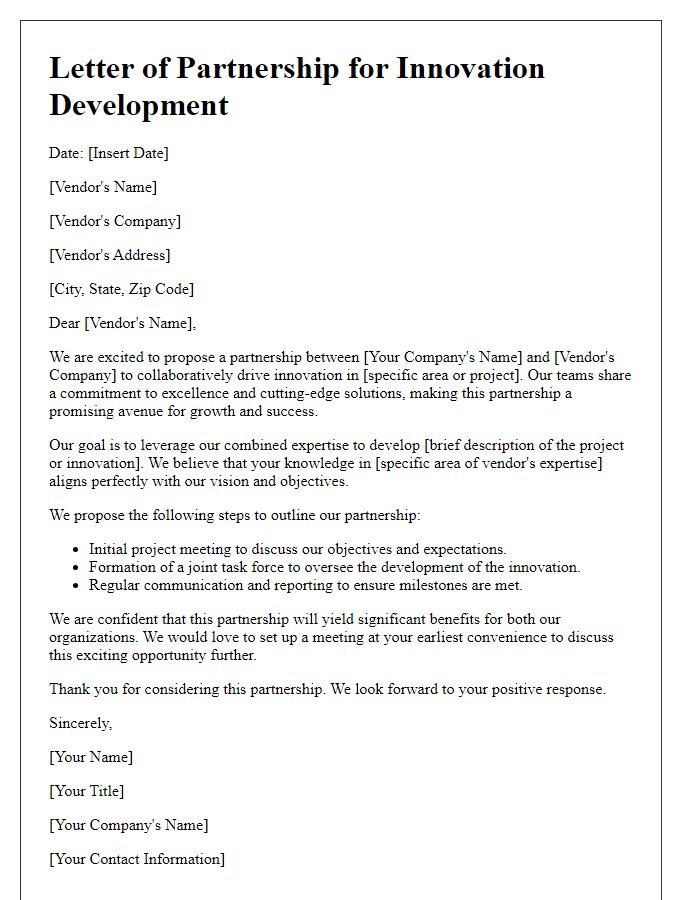
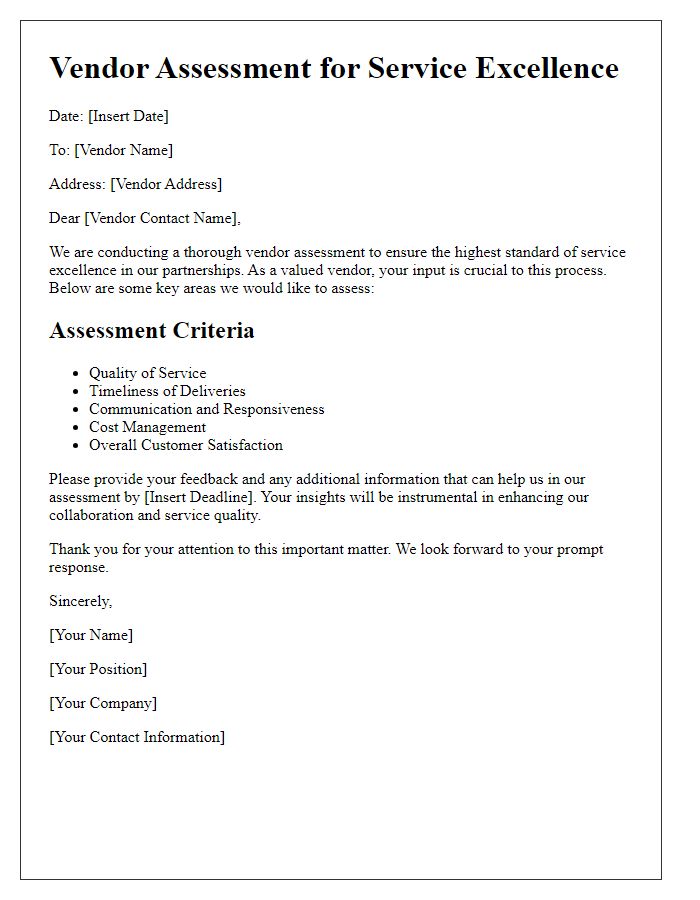
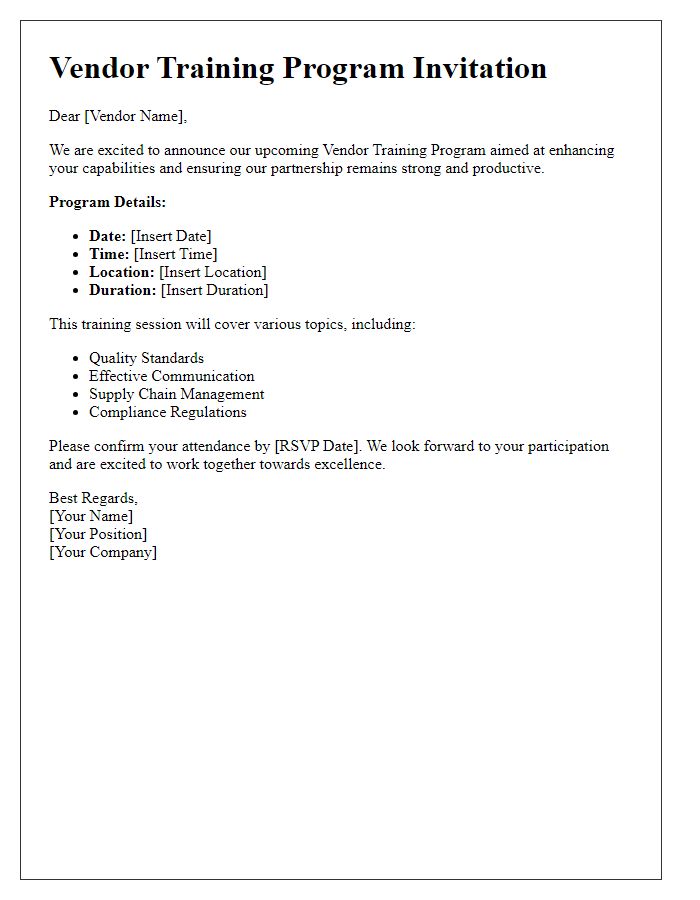
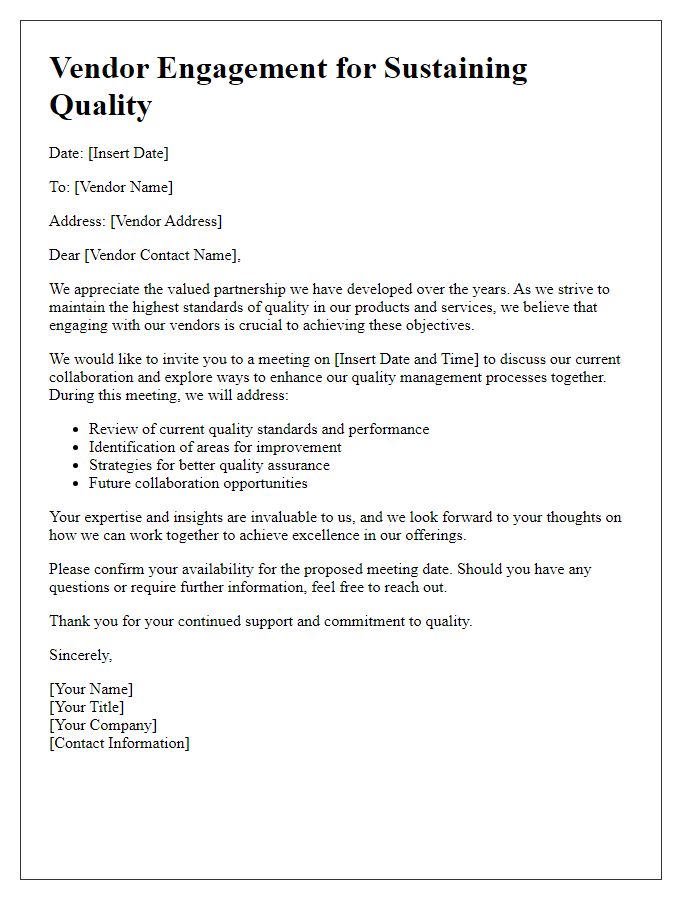
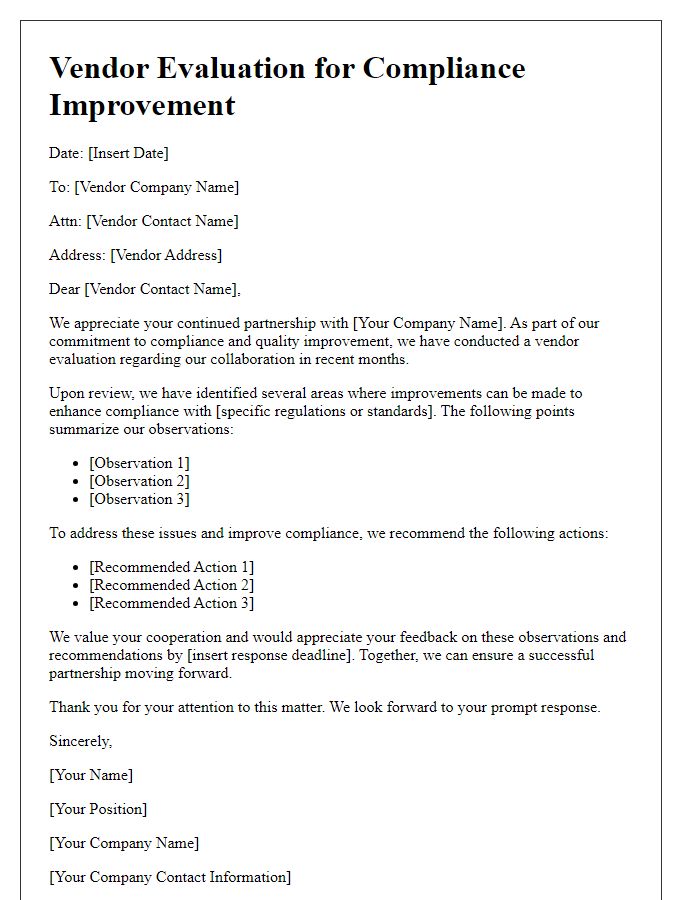
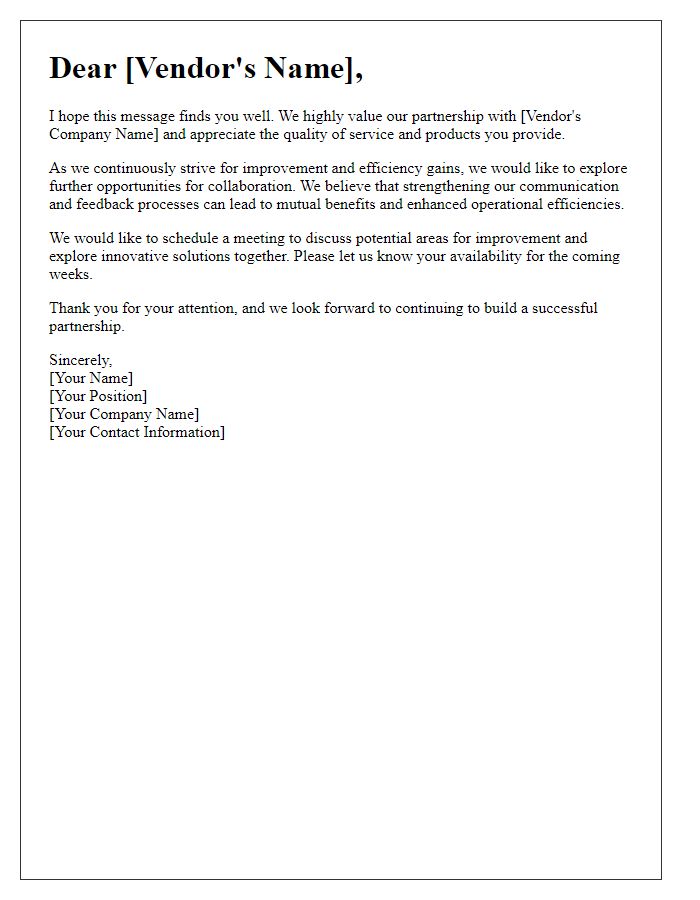
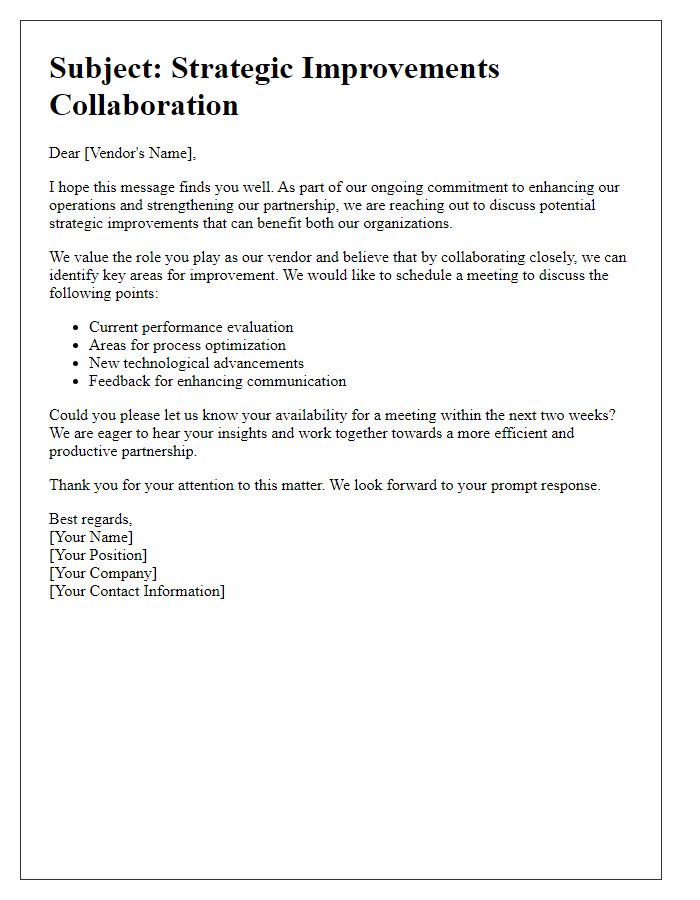


Comments